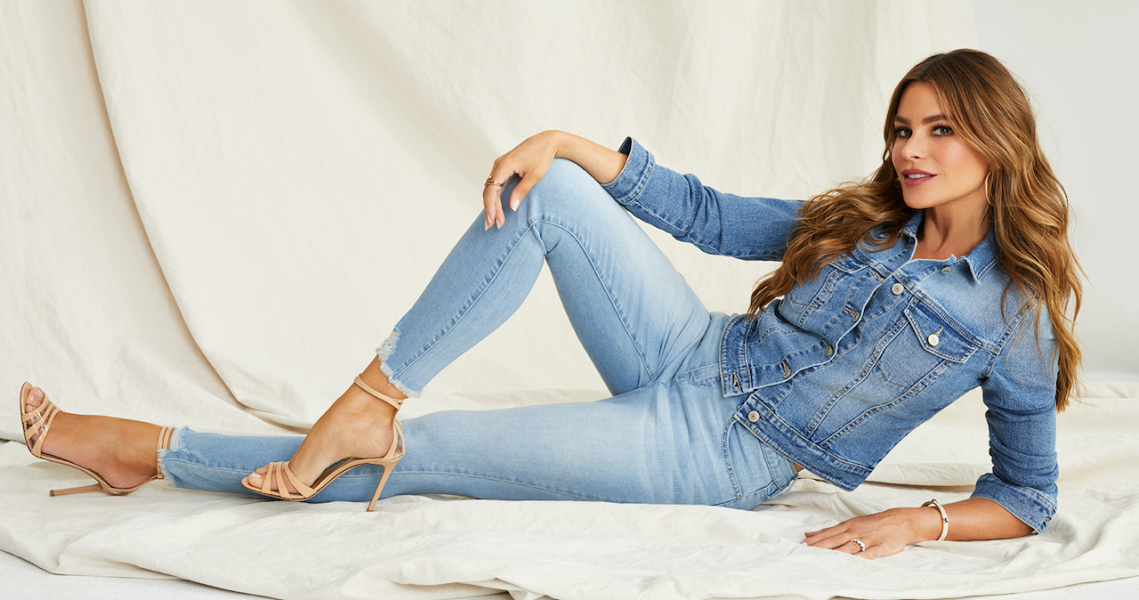Walmart is aiming to up its fashion cred.
The company is hellbent on setting itself up for a stronger fashion e-commerce business in 2020. At the end of 2019, Bonobos co-founder Andy Dunn shared his plans to step away from the Walmart in late January. He currently oversees all of Walmart’s digital consumer brands, including Eloquii and Allswell, and the company has yet to name his successor. Turning around that portion of the business will be among key focuses this year.
While Amazon is building its fashion credibility with new fashion-led services and a focus on influencer collections and Target has long been developing fashion collaborations with major designers like Jason Wu and Lily Pulitzer, Walmart has also been trying to make a name for itself in fashion. That push is mainly led by the company’s investment in private label and exclusive brands. At the close of 2019, Walmart rounded out the year with more than 600 fashion brands, including 150 premium fashion brands exclusive to Walmart.
“2020 will be the year Walmart steps up its e-commerce fashion game,” said Ronn Torossian, CEO of PR agency 5WPR. “Walmart has made some big acquisitions in recent years, as it tries to build a major e-commerce business. If other areas of the businesses are any indication, Walmart will likely begin to take a step back from new purchases, instead focusing on growing and improving current brands.”
While there had been speculation in 2019 that Walmart might sell Bonobos, a spokesperson for Walmart said that acquired brands, including women’s plus-size line Eloquii, will continue to be important part of the fashion business in 2020. Micky Onvural, former marketing chief for Bonobos, took over the CEO role from Dunn in September 2018.
Data from Edison Trends showed consumer spend at Bonobos.com was up 11% in November 2019, versus November 2018. The company projected sales on Bonobos.com totaled approximately 0.7% of all sales on Walmart.com for 2019.
Not all of Walmart’s acquired brands have stuck around, though. In October, Walmart sold off ModCloth to Go Global Retail, only two years after acquiring the business for between an estimated $50 million and $75 million. Over the summer, Recode reported that, at the time, Modcloth, Bonobos and Eloquii were all unprofitable. However, Sherene Hilal, vp of product marketing and business operations at retail technology company Bluecore, said that doesn’t necessarily mean Walmart will abandon its strategy of acquiring digitally native brands.
Ad position: web_incontent_pos1
“It’s clear that Walmart has started to shift their focus from discounting to connecting people to the right products, in order to get shoppers to return and buy more. In 2020, I expect Walmart to expand its fashion business to focus more on curation and quality [with a focus on companies like] Eloquii,” said Hilal. “We are also likely to see them continue to invest in tech that allows them to grow their customer base, while treating apparel as a primary acquisition lever.”
While Walmart does not specifically break out fashion sales for e-commerce, online sales grew 40% in 2018. E-commerce makes up about 5% of Walmart’s U.S. business. Moving forward, e-commerce and a growing fashion business online will help Walmart compete with the likes of Target and Amazon, as more shopping moves online. The company did $514.4 billion in revenue in fiscal year 2019.
Where a lot of the focus will likely be for Walmart in 2020 is in private label.
Denise Incandela, head of fashion, U.S. e-commerce for Walmart.com, has been a big driver of Walmart’s private label push. She joined Walmart in 2017 after stints as CMO for Saks Fifth Avenue and president of global digital for Ralph Lauren.
Her mission since joining has been to make Walmart a shopping destination for fashion. She has focused on launching exclusive brands that shoppers can only find at Walmart. In September, Incandela and her team brought back NYC fashion brand Scoop after the company closed all of its boutiques in May 2016.
Ad position: web_incontent_pos2
Walmart has also invested in launching exclusive brands with celebrities like Ellen DeGeneres on women’s line EV1 and Sofia Vergara on denim line Sofia Jeans by Sofia Vergara. Vergara’s line launched in February of last year, and DeGeneres’ collection launched in September 2018. Both started as online-only brands and began moving into Walmart doors late last year. The strategy to work with big-name celebrities on clothing collabs, versus influencers or other digitally native companies, makes sense for Walmart. As customer-acquisition costs rise across Facebook and Instagram, working with celebrities with built-in followings almost guarantees sales for the company. Ellen DeGeneres has 81.4 million Instagram followers, while Sofia Vergara has 17.8 million.
“[Sofia and Ellen] both felt like natural partners for us, and have been very successful, because we are all aligned to create big brands on Walmart.com,” said Incandela. “Now, after seeing success online, the stores are starting to carry Sofia’s line. We are brand building. We are in the process of building these brands that have their own DNA. We are keen on building out great quality products at an exceptional value.”




